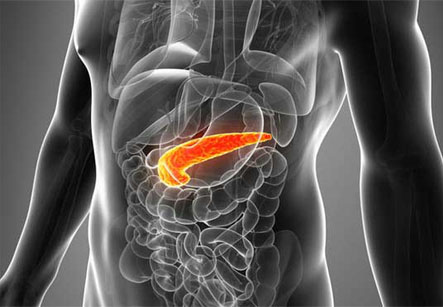Pancreatic Cancer
Introduction
Pancreas is located in the near the stomach. It secretes juices and hormones that help to digest food. It also produces hormones like insulin and glucagon that maintains optimum plasma glucose level. Pancreatectomy is the surgical removal of pancreas. There are different types of pancreatectomy depending on the nature and extent of disease. The procedures are indicated in various types of diseases that affect pancreas like cancerous conditions affecting pancreas, infective conditions like necrotising pancreatitis, severe trauma to pancreas etc.
Procedure and considerations
Commonest surgical procedure involving pancreas is pancreaticoduodenectomy. In this procedure surgeon removes affected part of pancreas, common bile duct and duodenum. The duodenum is the upper part of the small intestine. After completion of the procedure, remaining part is joined to small gut. In Whipple’s procedure, part of the stomach is also removed. These procedures are undertaken when cancerous conditions affecting head of pancreas. Recovery time is usually longer for these operations.
After surgery patient will be dependent on enzymes, insulin and vaccines.

Before the surgery the patient undergoes routine blood tests and check ups to determine general health and ability to withstand the surgery. Pancreas surgery is usually a major surgery. The patient is asked to fast with nothing (not even water) to be taken by mouth the night before surgery. Intravenous fluids are given to maintain adequate hydration and nutrition. Surgery is performed under general anesthesia. The upper abdomen is cleaned and draped with sterile surgical drapes. An incision is made over the abdomen. The pancreas and other organs are dissected out as planned before surgery. All cut blood vessels are secured to prevent bleeding. The ends of the cut organ are joined. For cancers the nearby lymph nodes are examined and sometimes dissected and sent to a pathologist for microscopic examination.
Complications after surgery are common and of varying severity. Complications that may occur are bleeding, infections, fluid collection, fistula formations etc. If bleeding is moderated to severe in nature, patient may be given a blood transfusion. Infection may occur due to internal collection of fluid. Fluid needs to be drained out accordingly. Prolong immobilisation after surgery may lead to chest infection.
After surgery proper follow up is essential. Patients must undergo regular checkups for early detection of recurrence and complications, if any. If there is pancreatic cancer a follow up with chemotherapy and radiation therapy may be advised. This may reduce the cancer further.